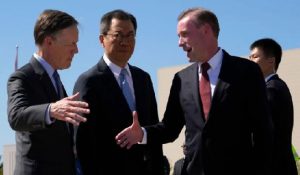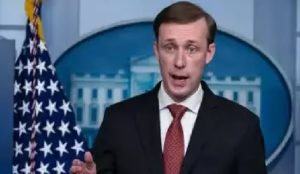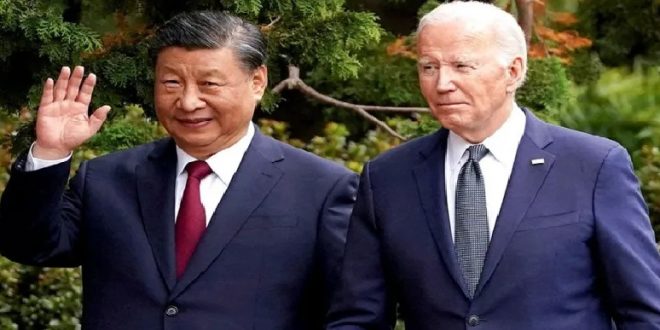28-08-2024
VIENNA/ WASHINGTON/ BEIJING: Jake Sullivan has arrived on his first visit to China as US national security adviser. He will hold talks with Foreign Minister Wang Yi as the two countries try to stabilize relations.
Sullivan and Wang have met four times over 16 months in Vienna, Malta, Washington and Bangkok. Their last meeting in January was shortly after a high-stakes summit between President’s Xi Jinping and Joe Biden that sought to reset frosty ties.
 This week’s talks – scheduled for Tuesday and Wednesday signal that China is still a priority for the Biden administration, even as the retiring president enters his final months in office.
This week’s talks – scheduled for Tuesday and Wednesday signal that China is still a priority for the Biden administration, even as the retiring president enters his final months in office.
Is another summit on the cards?
The White House is trying not to explicitly link Sullivan’s trip to the US presidential election. But it’s hard to ignore the timing.
If Sullivan is able to lay the groundwork for a final Biden-Xi summit, his trip would tie up the ends of the US president’s most consequential and fraught foreign policy relationship.
Beijing’s view: A ‘critical juncture’
US and Chinese diplomats always acknowledge that talks between Washington and Beijing are never easy. And there is a lot to talk about.
With the unexpected turn the US election has taken with Biden bowing out in favor of Kamala Harris, China is watching closely for what the next presidency might have in store.
Donald Trump has made it clear he will raise tariffs further on Chinese goods, potentially deepening the trade war he kicked off in 2019.
While Biden’s administration saw merit in diplomacy, he didn’t reverse Trump-era tariffs and has added more in May he announced steep duties on Chinese-made electric cars, solar panels, and steel.
Biden has also strengthened alliances across Asia to combat China’s rising influence and beefed up Washington’s military presence which, in turn, has rattled Beijing.
 So far, the Harris campaign has not given many clues about how she plans to manage the relationship with China and the White House has made clear that Sullivan’s visit is meant to continue the work of the Biden administration, rather than set the tone for the next president but China is likely looking ahead anyway.
So far, the Harris campaign has not given many clues about how she plans to manage the relationship with China and the White House has made clear that Sullivan’s visit is meant to continue the work of the Biden administration, rather than set the tone for the next president but China is likely looking ahead anyway.
Beijing will use this opportunity with Sullivan to clarify its own priorities. It will hope that all parties in America are listening China’s ministry of foreign affairs has described this as a “critical juncture” between the world’s two biggest economies.
For China, the red line is and always will be Taiwan. It claims the self-governing island and has repeatedly said it will not tolerate any signs that Washington is encouraging Taiwanese independence.
High-profile diplomatic visits, such as a controversial one by then House Speaker Nancy Pelosi in 2022, or recognition of Taiwan’s elections or its elected leaders, fall into that category.
Chinese state media has said Beijing will focus on expressing grave concerns, stating its position, and making serious demands on matters such as the “Taiwan question”.
China will also have some strong words for Sullivan on trade. Beijing has described US tariffs on Chinese goods as “unreasonable” and has urged Washington to “stop politicizing and securitizing economic and trade issues” and “take more measures to facilitate people-to-people exchanges between the two countries”. (Int’l News Desk)
 Pressmediaofindia
Pressmediaofindia




